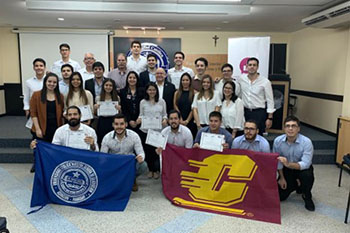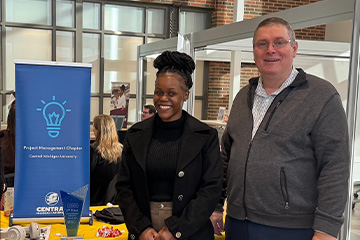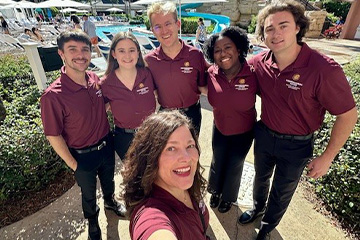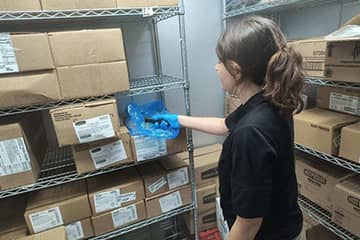Studying the unseen economy: A global lens on business, culture, and connection
Management faculty member Mike Pisani studies market informality in Latin America and beyond while helping students engage with global business in real-world ways.
For management faculty member Mike Pisani, business and economics have always been rooted in people—not just numbers.
His research into market informality (“under the table” economic activity) spans decades and continents, from Nicaragua to Paraguay, Belize and Haiti to the U.S.–Mexico border. But the question driving his work remains simple: How do people survive when the system isn’t designed for them?
“Two in three workers in Paraguay work in the informal economy,” Pisani said. “In my research, I say informality contributes anywhere from 20 to 33% of GDP.”
Pisani's time in Paraguay began in 2019, when political unrest in Nicaragua prompted the U.S. State Department to redirect his Fulbright award—an international academic exchange program for researchers and educators—to a different Latin American country. He chose Paraguay, where he collaborated with CADEP, a leading economic think tank.
“The informal economy is one of those stages of economic development,” Pisani said. “But for most Latin Americans, particularly finance ministers or people in government, it's sort of seen as a drag on the economy because they can't use it as a revenue resource.”
Research with real-world reach
Pisani’s work in Paraguay has led to a book-length monograph, a precursor volume on self-employment and entrepreneurship, and multiple presentations to policy organizations and academic institutions. During his time in Asunción, he also taught a course on economic informality through the Universidad Católica and mentored students researching topics on informality ranging from domestic workers to Facebook-based sellers.

For Pisani, this work is as much about relationships as it is about data.
“It’s not just a policy issue—it’s a human one,” he said. “When you listen to how people navigate informal markets, you learn a lot about creativity, resilience, and the gaps that formal systems still need to address.”
Language, inequality, and opportunity
Pisani’s current research explores the connection between language and informality in Paraguay, where Spanish and Guaraní (an Indigenous language) are used situationally. His findings suggest that language use correlates with economic access.
“My research has uncovered connections between language and informality,” he said. “Guaraní is a marker of informality and suppressed incomes, whereas higher education levels [are] a robust equalizer of economic outcomes.”
That belief in the power of education shows up in Pisani’s teaching—and in the way he brings the world into the classroom.
Global learning through connection
Through personal partnerships and CMU’s COIL (Collaborative Online International Learning) program, Pisani has led semester-long projects connecting students with peers in Mexico, Chile, and Canada in addition to his own connections in Haiti, Belize, Honduras, and Paraguay. Together, they explore topics like sustainability, international trade, labor and business practices, and the challenges of launching businesses in informal contexts.
But beyond the assignments and analysis, Pisani sees something more powerful at work: students learning how to listen, question, and grow.
“The key is that the more time you spend with others, then the more likely you are going to have those reactions,” Pisani said, referencing the self-reflection students often express after working with international peers. “It’s because they just never had these encounters before.”
For many students, it’s the first time they’ve had to navigate cross-cultural nuance in real time, rethink their assumptions, or consider how business operates in places where formal systems may not be dominant.
Pisani helps students understand that business isn’t just a system—it’s a human experience.
“These are the stories we often miss,” he said. “But they’re where business actually happens.”




